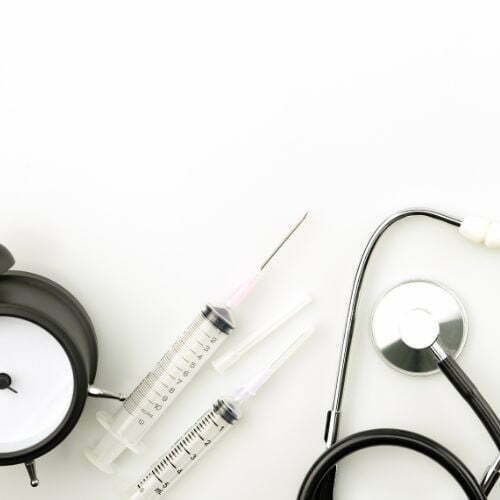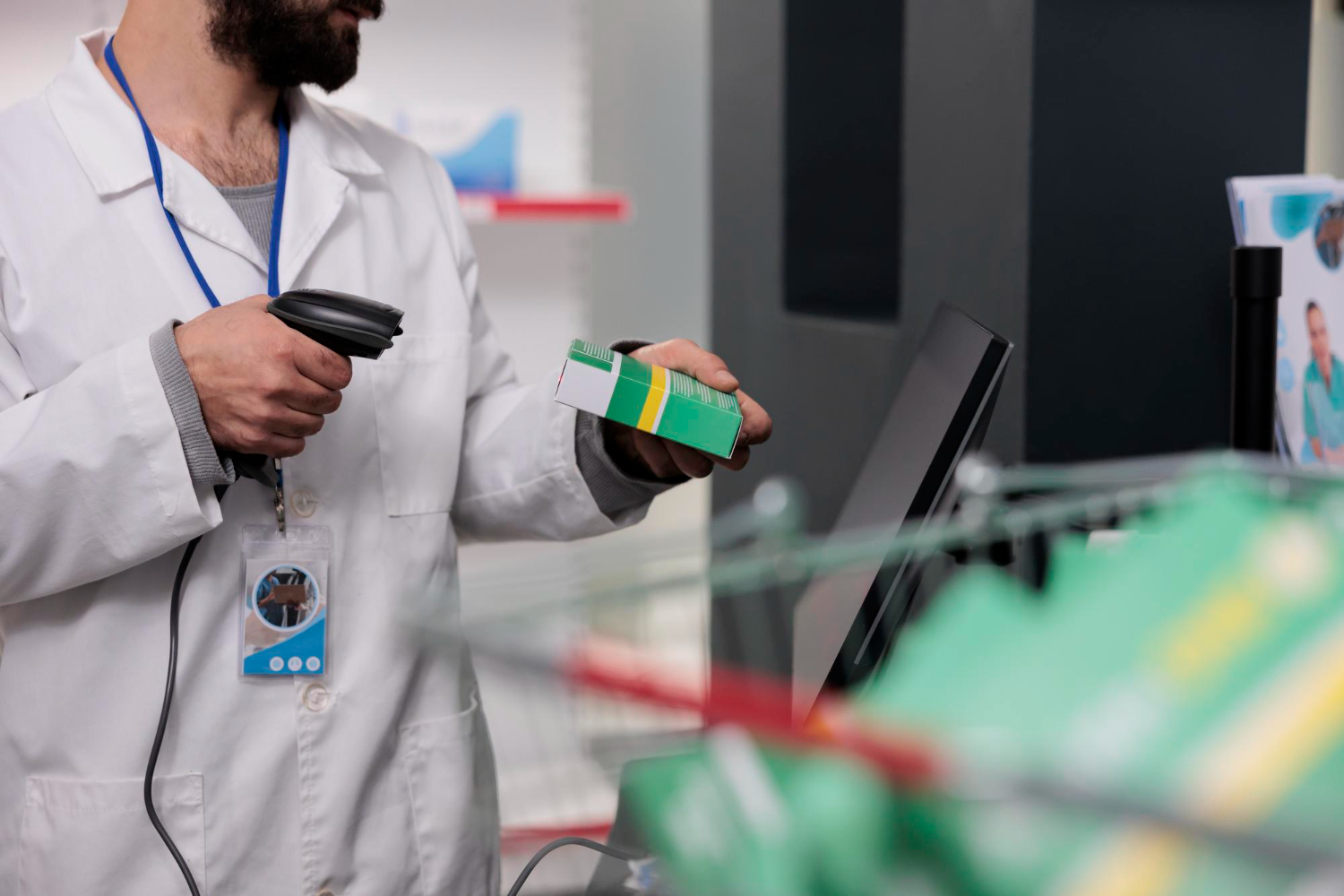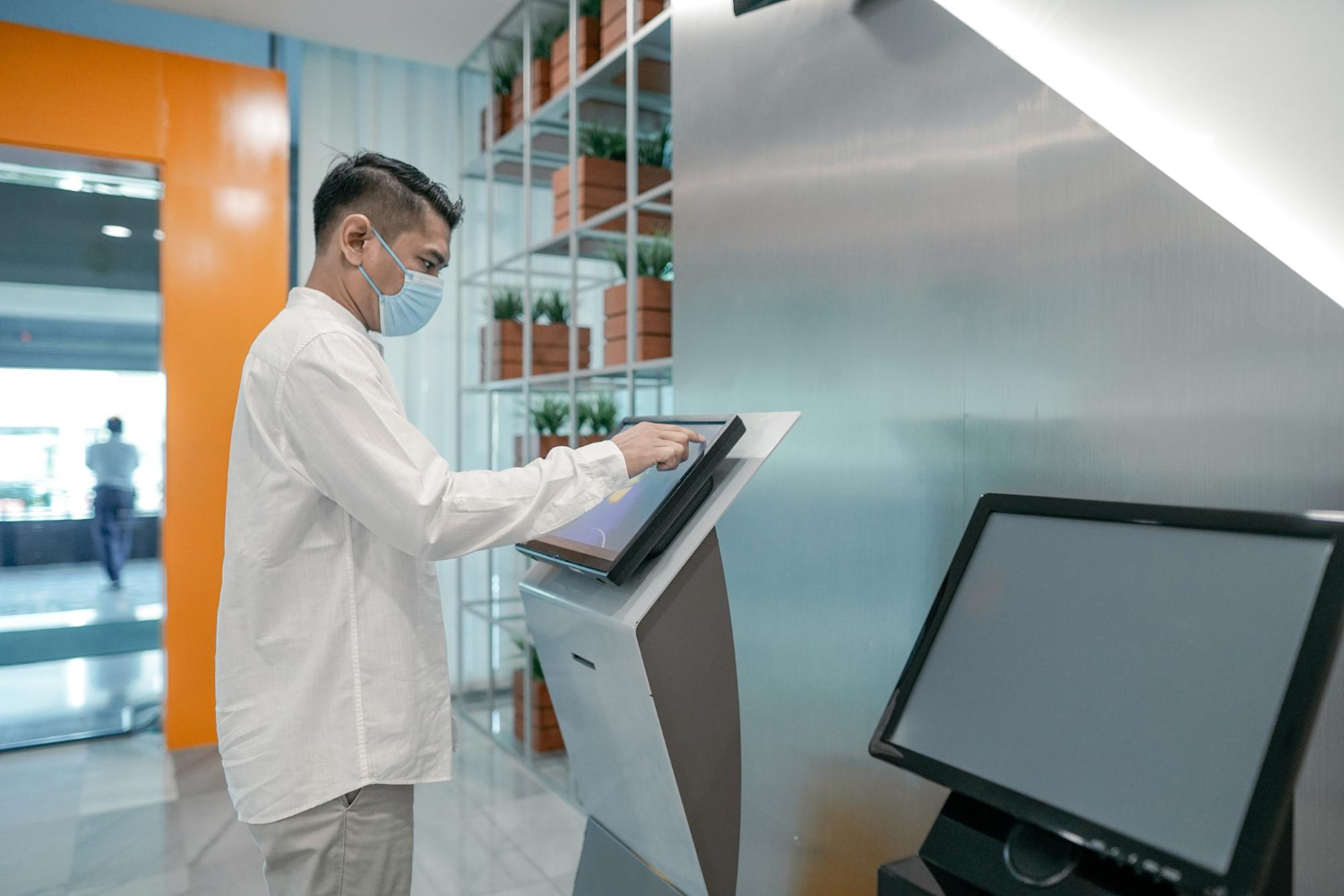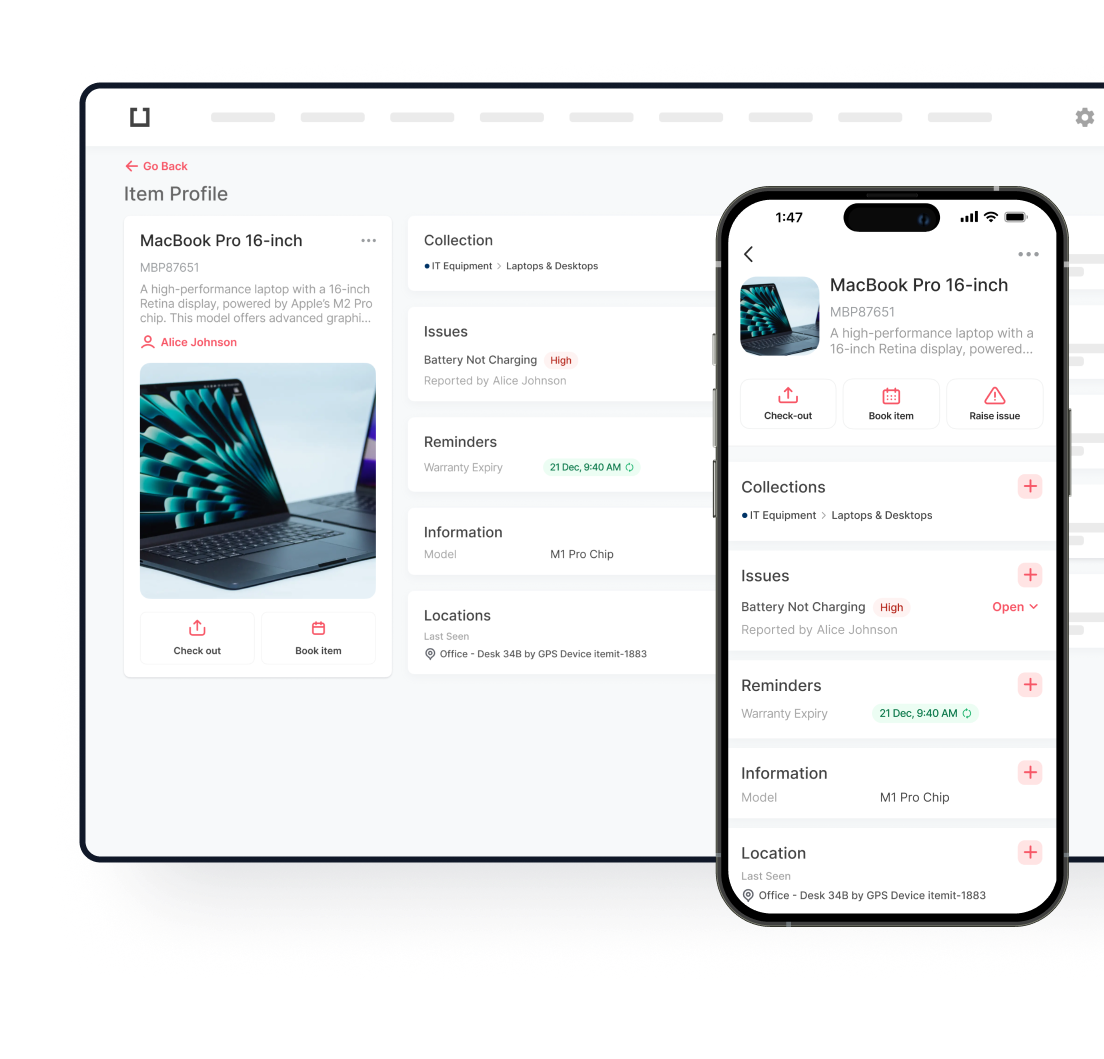

Efficiency in healthcare delivery isn’t merely convenient—it’s absolutely critical. Hospitals and clinics face constant pressure to provide excellent patient care while managing tight budgets, making reliable technology essential. RFID medical systems have emerged as key tools that reshape how healthcare facilities track equipment, maintain compliance, and boost patient safety.
The Hidden Power of Tracking Medical Assets
Manual equipment logging is quickly becoming obsolete. Medical equipment RFID technology gives healthcare providers a precise and user-friendly approach to high-value asset tracking that slashes administrative work while boosting accuracy.
Unlike barcodes that need direct visual scanning, healthcare RFID tags work without line-of-sight. This practical difference creates genuine advantages: tags sit discreetly inside equipment, safe from damage and tampering, yet still reliably send location data. For expensive portable machines like infusion pumps or ventilators—equipment that moves constantly between hospital areas—this feature saves countless hours and resources.
Consider the typical scenario in a busy hospital: a critical piece of equipment isn’t where it should be, setting off a frantic search that wastes precious minutes. With RFID medical equipment tracking systems in place, staff can instantly pinpoint the exact location of needed devices, eliminating these frustrating and potentially dangerous delays.
Building Comprehensive Asset Histories
RFID for medical devices creates much more than simple location data—it constructs rich, detailed digital histories for every piece of equipment in your facility. These comprehensive profiles contain critical information such as scheduled and completed maintenance records, precise usage patterns, current sterilisation status, calibration history, and numerous other vital parameters that directly impact both clinical operations and patient safety outcomes.
Medical equipment in busy hospitals rarely stays in one place or with one user. Ventilators travel from ICU to theatre, infusion pumps move between wards, and ultrasound machines serve multiple departments—all while passing through dozens of hands weekly. Traditional paper logbooks or spreadsheets simply cannot keep pace with this movement. Medical device RFID elegantly resolves this challenge by capturing each interaction automatically without requiring staff intervention.
The resulting digital timeline delivers exceptional benefits across multiple operational areas:
- Predictive maintenance planning: Rather than relying on arbitrary schedules, maintenance occurs precisely when needed based on actual usage patterns and operational hours. This approach reduces downtime, extends equipment life, and prevents unexpected failures during critical procedures.
- Regulatory compliance documentation: Should auditors or regulators request equipment histories, comprehensive records, and an instantaneously available showing every maintenance check, safety test, and calibration? This automated documentation eliminates paperwork while ensuring complete regulatory adherence.
- Detailed equipment lifecycle management: Track performance degradation over time, identify problematic equipment models that require frequent repairs, and pinpoint exactly when replacement becomes more cost-effective than continued maintenance.
- Cross-departmental usage optimisation: Discover which departments truly need dedicated equipment versus where sharing resources would be more efficient. Identify usage patterns that might suggest the need for additional training or workflow adjustments.
- Contamination and infection control: Maintain thorough records of sterilisation procedures and ensure that equipment meets rigorous hygiene standards before patient contact.
These digital profiles reveal patterns that would otherwise remain hidden, offering unprecedented visibility into how fixed assets perform throughout their operational life. With this wealth of data, healthcare administrators gain the insight needed to make truly informed decisions about repairs, replacements, and resource allocation across the entire organisation.

Transforming Auditing from Burden to Breeze
For healthcare administrators, regulatory compliance represents a constant challenge requiring meticulous documentation. RFID healthcare inventory systems transform traditional auditing processes from painstaking manual exercises into streamlined, automated workflows.
With medical device tags affixed to equipment, conducting comprehensive inventories becomes remarkably straightforward. Staff can quickly generate detailed reports capturing:
- Current equipment locations
- Maintenance status
- Utilisation rates
- Compliance verification
This capability dramatically reduces the time and resources dedicated to audit preparation while simultaneously improving accuracy. The days of spreadsheet-based tracking with inevitable human error are replaced by reliable, automated systems that capture every asset movement.
Financial Stewardship Through Enhanced Visibility
Healthcare facilities represent significant investments in specialised equipment and fixed assets. RFID medical systems serve as powerful tools for protecting these investments through improved asset management.
By implementing comprehensive hospital equipment RFID Equipment Tracking Systems, facilities gain unprecedented insight into equipment utilisation patterns, allowing them to:
- Optimise inventory levels
- Reduce unnecessary purchases
- Extend equipment lifecycles through timely maintenance
- Allocate resources more effectively across departments
Even consumable supplies benefit from this approach, with RFID healthcare inventory systems providing real-time visibility into stock levels and usage patterns. This prevents both costly overstocking and dangerous stockouts of critical supplies.
For textile management—a significant expense in healthcare settings—healthcare RFID tags embedded in linens and garments offer additional benefits:
- Reduced manual handling improves infection control
- Accurate wash count records help predict end-of-life dates
- Greater visibility into inventories ensures constant availability
Protecting Valuable Assets
Healthcare facilities invest millions in specialised medical equipment, making asset security a top priority. RFID medical technology delivers sophisticated security capabilities that go far beyond conventional asset management approaches, creating multi-layered protection for your valuable equipment investments.
Each piece of tagged equipment generates a detailed movement record that functions like a digital fingerprint. This automatic tracking creates second-by-second accountability for every item in your inventory, regardless of size or value. Mobile ultrasound machines worth £50,000+, specialist diagnostic tools, and even smaller portable devices like tablets and infusion pumps gain continuous protection through:
- Real-time movement monitoring: The system flags unusual equipment movements instantly. If an expensive bronchoscope leaves endoscopy without proper authorisation or after scheduled hours, security receives immediate notifications.
- Precise chain of custody: Each scan creates an unambiguous digital record linking specific fixed assets to individual staff members. This clear responsibility trail makes equipment users considerably more careful when handling valuable items.
- Geofencing capabilities: Create virtual boundaries for sensitive or high-value healthcare industry tools. Should equipment cross these pre-defined zones without authorisation, the system triggers alerts to appropriate personnel. This proactive security measure prevents losses rather than merely documenting them after the fact.
- Usage pattern analysis: The system learns normal movement patterns, making it easier to spot potential theft scenarios. When equipment deviates from established patterns, like being taken to unusual locations or moved during non-operational hours, security staff receive notifications.
- Automatic inventory reconciliation: Daily automated scans ensure complete inventory verification without manual counting. Missing items are flagged immediately rather than weeks later during traditional inventory checks.
- Deterrence effect: Simply knowing comprehensive tracking exists significantly reduces opportunistic theft attempts. Staff and visitors aware of hospital equipment RFID systems are far less likely to consider removing items improperly.
- Recovery support: Should theft occur despite precautions, detailed location histories assist security personnel and law enforcement in asset recovery efforts. The last known location and movement path provide critical investigation starting points.
This comprehensive security approach transforms equipment protection from a reactive exercise into a proactive strategy. Rather than discovering losses during periodic inventories—often weeks or months after the fact—RFID medical equipment tracking systems provide continuous awareness of your valuable assets.
For healthcare facilities that may lose hundreds of thousands of pounds annually to equipment theft or misplacement, these security capabilities deliver substantial financial benefits alongside operational improvements. Each recovered or prevented loss represents direct budget savings that can be redirected toward patient care rather than equipment replacement.
RFID in the Operating Theatre
Nowhere are the benefits of RFID medical systems more evident than in surgical settings. Operating theatres utilise hundreds of specialised instruments and healthcare industry tools during procedures, and ensuring each item is properly accounted for represents a critical safety concern.
By embedding medical device tags in surgical instruments, hospitals gain:
- Automated instrument counts before and after procedures
- Instant verification that all items have been removed from the patient
- Comprehensive sterilisation records for each instrument
- Detailed usage histories for maintenance planning
This application of RFID for medical devices directly enhances patient safety while improving operational efficiency. The technology reduces the risk of retained surgical items—a “never event” with serious consequences—while simultaneously streamlining instrument management processes.
Optimising the Care Journey
Beyond equipment management, medical uses of RFID extend to enhancing patient flow through healthcare facilities. RFID-enabled wristbands allow staff to track patient movements seamlessly, identifying bottlenecks and optimising resource allocation.
This capability proves particularly valuable in emergency departments, where delays can have serious consequences. By maintaining real-time visibility into patient locations, staff can ensure appropriate prioritisation and minimise waiting times.
The same technology facilitates better coordination between departments, ensuring smooth transitions as patients move through different stages of care. This enhanced visibility allows hospitals to make data-driven decisions about staffing, scheduling, and resource allocation—all of which directly impact the quality of patient care.
Medication Management
Medication errors represent one of the most common—and potentially serious—risks in healthcare settings. RFID medical technology offers powerful tools for mitigating these risks through enhanced tracking and verification.
By tagging medications with healthcare RFID tags, facilities can:
- Verify that the right medication is given to the right patient
- Track medication inventory in real-time
- Ensure proper storage conditions
- Monitor expiration dates automatically
- Create comprehensive audit trails for compliance
These capabilities significantly reduce the risk of medication errors while simultaneously improving inventory management. Staff spend less time on manual checks and more time on direct patient care, enhancing both efficiency and safety.

Protecting Sensitive Areas
Healthcare facilities contain numerous restricted areas where access must be carefully controlled. RFID medical systems provide sophisticated yet user-friendly solutions for managing access to operating theatres, pharmacies, records storage, and other sensitive locations.
Staff members receive RFID-enabled badges that grant appropriate access based on their roles and responsibilities. Each access event generates a digital record, creating comprehensive audit trails for security and compliance purposes.
This approach enhances security while reducing administrative burden—no more managing physical keys or remembering complex passcodes. The system can be quickly updated when staff roles change, ensuring access privileges remain appropriate at all times.
RFID During Crisis Response
During mass casualty events or other emergencies, healthcare facilities face extraordinary challenges in tracking patients, equipment, and resources. RFID medical systems provide critical support during these high-stress situations by maintaining real-time visibility into available resources.
Patients receive RFID wristbands upon arrival, allowing staff to:
- Track their location within the facility
- Monitor treatment status
- Access critical medical information
- Ensure appropriate prioritisation
Meanwhile, RFID medical equipment tracking ensures staff can quickly locate the resources they need, from ventilators to trauma kits. This enhanced visibility directly improves response times and resource utilisation during crisis situations when every second counts.
The itemit Advantage
For healthcare facilities seeking to implement RFID medical systems, itemit offers comprehensive solutions that address the unique challenges of medical environments. Our platform combines powerful software with reliable hardware to deliver:
- Seamless integration with existing systems
- Intuitive interfaces for staff at all technical levels
- Comprehensive reporting capabilities
- Scalable solutions that grow with your facility
- Future-proof technology with regular updates
- Dedicated support from implementation through operation
As a one-stop shop for healthcare RFID tags, readers, and software, itemit provides everything needed to transform asset management across your organisation. Our fixed RFID medical equipment tracking functionality offers full, off-the-shelf automation with minimal implementation complexity.
The Future of Healthcare Asset Management
As healthcare continues to evolve, the importance of efficient asset management will only increase. RFID medical systems represent not just a technological upgrade but a fundamental shift in how healthcare facilities approach equipment tracking, maintenance, and security.
By implementing these systems, hospitals and clinics gain unprecedented visibility into their operations, enabling data-driven decisions that enhance both operational efficiency and patient care. The initial investment in RFID for medical devices typically yields rapid returns through reduced losses, more efficient resource utilisation, and decreased administrative burden.
For healthcare administrators navigating complex budgetary and operational challenges, RFID medical equipment tracking offers a powerful tool for optimising resources while maintaining compliance and enhancing security. It’s not merely a convenience—it’s an essential component of modern healthcare delivery.
Contact itemit today to explore how our comprehensive RFID medical solutions can transform asset management across your healthcare organisation.

Try itemit
Choose a better way to track your assets. Start your free 14-day trial now!

Keep Learning
itemit Blog
Tips, guides, industry best practices, and news.
Tips For Tracking Your Office Equipment
Wish to discover how using office equipment management software can help you to track your office equipment? Read this post now!
How to Choose the Best Heavy Equipment Tracking System
Wish to track your agricultural assets but you’re not sure how? Read this post to find out why using an RFID tracking app is the way forward!
Construction Equipment Tracking Made Simple
Run at least one construction site? construction equipment tracking can be made simple when you use the right software. Read this post now to find out more!
